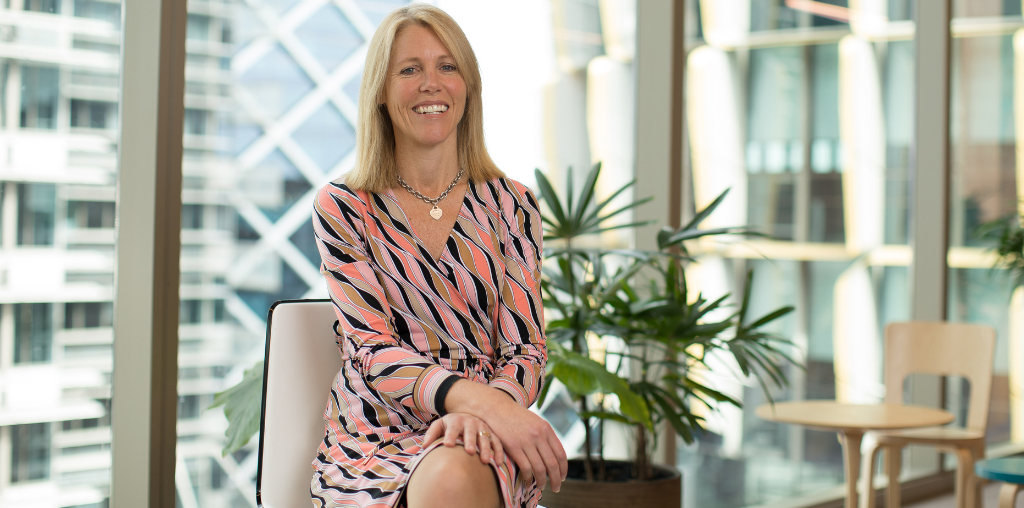Tracy Gawthorne on the biggest threat facing CMOs and what they need to do to solve business problems and drive value.
Tracy Gawthorne understood some time ago that marketers who want to be truly effective in an organisation must establish themselves as business leaders first. She knew marketing’s specialist skills were essential in every business function – not treated as peripheral to key decision-making.
“What I've learnt is that when you try to ringfence marketing independently of other operational areas, it really sidelines the conversation,” says Gawthorne, who is Managing Director for Marketing and Communications in Australia and New Zealand at professional services company Accenture.
She says she learnt this “the hard way” while sitting on various local, regional and global management teams. “You know, there was a bit of a brand and advertising discussion, maybe a bit of conversation around sentiment in the marketplace, but I was never embedded in the business discussions I wanted to be part of.”
Feeling frustrated, Gawthorne vowed to push marketing to the centre of strategic business discussions – everything from the shape of the business model to how the organisation creates value. “It was less about me defending and positioning marketing as a function – it was about contributing to the business needs of the organisation,” she says.
Taking the first step towards this forced Gawthorne into something “quite confronting” – abandoning the marketing slot on the agenda at senior management meetings.
“I often found when the time came for the marketing discussion, it was either pushed out or we would have less time or have a run-through where people frankly felt it was time to go to the bathroom or make phone calls,” she says. “I said [to myself]: 'If I'm going to be embedded, I need to be part of every agenda item'.”
Gawthorne has since made it a priority to understand what is on the agenda and know where marketing can best contribute to those discussions. “I spend a lot of time working with all the leadership team on the issues and opportunities we've identified, helping them understand what needs to be done from the brand's reputation, client experience and stakeholder management point of view,” she says. “This is a very different discussion – it’s about solving problems, creating opportunities and driving value.”
Marketers as ‘chief collaborators’
Gawthorne has more than 20 years’ experience building brands, creating customer experiences and driving growth in markets across the world. At Accenture, she made her mark in resources before becoming the company’s global director of marketing and communications for the energy industry. She had been regional MD since April 2017.
She believes senior management works best when the specialists in their field – marketing, finance, sales, operations or HR – combine their unique skills to establish strategies, define goals and overcome challenges.
“It’s about understanding where value is created within an organisation – where it's trapped, where it's diluted and what to do about it,” she says. “This is fundamental to the shift from thinking ‘I'm a marketing person’ to ‘I'm a business person’.”
It also means future CMOs must understand the fundamental aspects of their organisation, she says. They need to know what activities are sustainable and have the greatest impact on the company P&L, understand the motivations of shareholders, directors and (in smaller businesses) founders, and be familiar with the factors likely to disrupt their industry.
“If you see CEOs deliver their analyst briefings every quarter, you will understand the things they're talking about in the marketplace around disruption, new business strategies and the operating model,” she says. “There is a fundamental change taking place in the ways businesses have traditionally been run. Customer engagement and experience are underpinned by changes in technology and in new ways of working. Things like agility, the contractor workforce, gig economy – marketers should understand those things.”
CMOs, she says, should be in a unique position because they track fundamental strategic business components, especially people, processes and technology. "The ability to understand all of that – almost to be the chief collaborator – is an opportunity for marketers.
Often in organisations, marketing has a view across the whole business. We just have to get forward and own that."
Her thoughts are reflected in Accenture’s recent Meet The New Brand of CMO research. The global survey of 1000 senior marketers found the CMO role will change considerably over the next three years and highlighted why businesses need to deliver hyper-relevant experiences for their customers.
Major threat to CMOs
Gawthorne believes marketers’ biggest threat is allowing themselves to be siloed. CMOs often find themselves running teams that are an adjunct to the business, and this can lead to more uncertainty about the role’s seniority and marketers’ ability to shift up the corporate ladder.
“Businesses will tell you it's harder to get good CMOs,” Gawthorne says. “Many organisations here and overseas are changing their operating models, bringing in roles like ‘chief growth officer’ or ‘chief experience officer’. In some cases, this is diluting or demoting the CMO out of the C-suite.”
This shouldn’t be allowed to happen, she says, when businesses should sharpen their focus on core marketing strengths – customer, community and purpose. “I think there's a great opportunity for people with that understanding of customer and brand and value to be excellent CEOs.”
The B2B Marketing Leaders Forum events in Sydney, Singapore and Melbourne feature insights from the world's leading marketers. To find out more, go to b2bmarketingleaders.com.au
Further reading: IBM CMO Susan Jain on the essential skills of future marketing leaders


